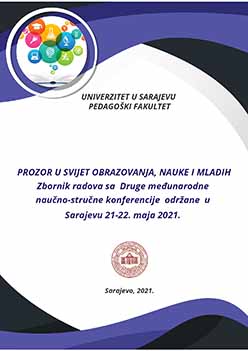STAVOVI UČITELJA O MENTALNOJ ARITMETICI
TEACHERS' ATTITUDES ABOUT MENTAL ARITHMETIC
Author(s): Minela Crnovršanin, Sanela Nesimović
Subject(s): School education, Higher Education
Published by: UNIVERZITET U SARAJEVU – PEDAGOŠKI FAKULTET
Keywords: mathematics teaching; mental arithmetic; abacus; students;
Summary/Abstract: Teaching mathematics is a challenge for every modern teacher. The choice of working and teaching methods should not only satisfy the goal and learning outcomes, but also make it easier for students to adopt abstract mathematical concepts, as well as arithmetic operations. In this regard, teachers are constantly looking for new methods aimed at actively involving as many students as possible in teaching of mathematics. Mental arithmetic is a method, but also a tool by which children focus, think, listen and understand what they hear, a way to encourage concentration, an informative process, a way to get to the heart of the problem. The application of the abacus for arithmetic, and later for mental arithmetic, affects the development of both cognitive and intellectual abilities. When all the benefits of mental 63arithmetic are considered, the abacus and abacus calculation should be the foundation of modern education. There are numerous studies that have undoubtedly proven the importance of early learning of abacus work. For the purpose of this case study a research has been conducted which can be used for creating work with students. The aim of the research is to examine and determine if the teachers are familiar with the effect of working on abacus and if they are considering it be involved again in regular education. The obtained results will be used in creating work with primary school students.
Book: Prozor u svijet obrazovanja, nauke i mladih
- Page Range: 62-76
- Page Count: 15
- Publication Year: 2021
- Language: Bosnian
- Content File-PDF

